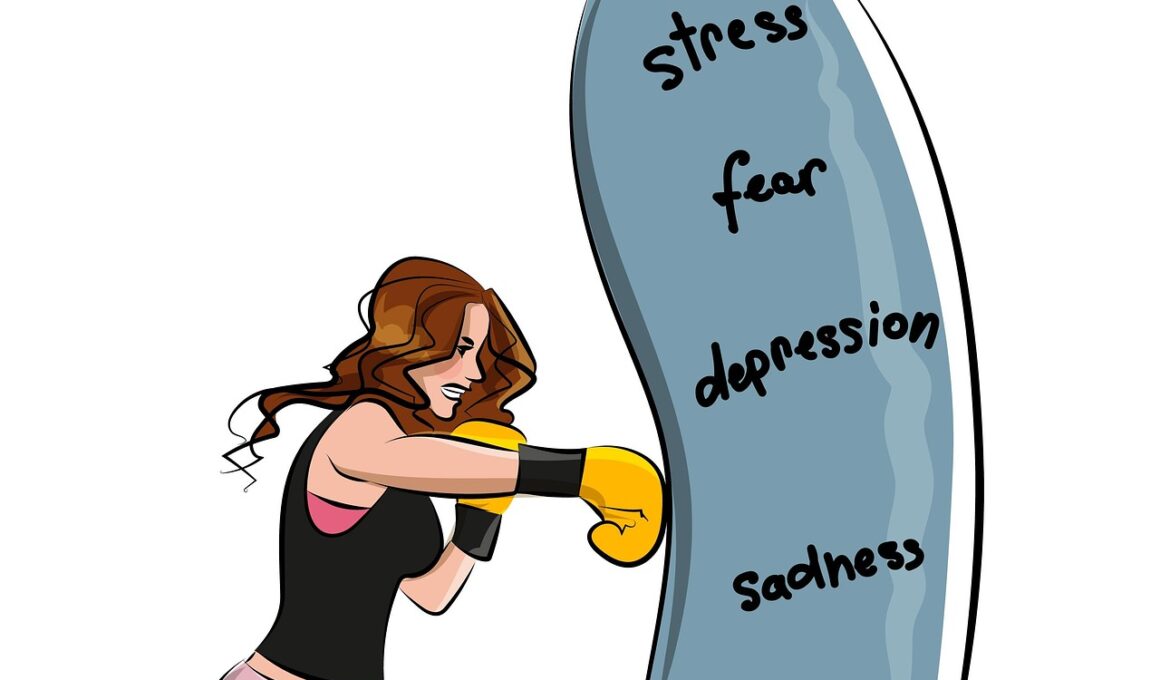The Road to Recovery: Nicole’s Success with Fitness and PTSD
Nicole’s journey toward overcoming her PTSD has been nothing short of inspiring. After battling severe anxiety and flashbacks from her past, she turned to fitness as a vital tool in her recovery process. Initially, Nicole struggled with numerous challenges, including physical limitations and a lack of motivation. However, with determination and the right support, she embarked on a personalized fitness routine. This routine was tailor-made to not just strengthen her body but also to enhance her mental well-being. With each step, Nicole dedicated herself to facing her fears head-on and embracing the healing potential of fitness. The combination of structured exercise, routine, and mental health awareness facilitated gradual changes in her outlook. Nicole realized that committing to a healthier lifestyle required patience and consistency. She started noticing small victories, such as improved sleep patterns and reduced anxiety levels. Her fitness journey was not merely about physical transformation; it symbolized a broader reclamation of control over her mental health, allowing her to gather strength to manage her PTSD more effectively.
Building a Supportive Environment
To maximize her chances for success, Nicole understood the importance of surrounding herself with a supportive community. Recognizing the battle against PTSD can be isolating, she began attending local group classes aimed at both fitness and mental wellness. Engaging with like-minded individuals helped her feel less alone on her journey. She discovered that sharing experiences and discussing challenges with others also provided an outlet. Together, they motivated one another and celebrated even the smallest of achievements. Nicole found an instructor who specialized in trauma-informed fitness practices. This specialist guided her through safe exercises that promoted resilience while respecting her limitations. Incorporating mindfulness techniques, such as yoga and meditation into her regimen, proved invaluable. Such practices not only contributed to her physical transformation but significantly decreased her daily anxiety levels. Nicole shared her experiences with her family, who became staunch supporters. Their encouragement kept her focused on her goals. With a supportive network in place, Nicole cultivated an environment where she could thrive, building her confidence and trust in both herself and others around her.
Nicole learned the importance of setting realistic fitness goals that aligned with her mental health needs. Instead of focusing solely on weight loss or physical appearance, she emphasized goals that would help her recover by enhancing her emotional resilience. These goals included attending regular fitness classes consistently and gradually increasing her stamina. She took pride in achieving these milestones, like performing bodyweight workouts or participating in a community 5k run. Each small accomplishment motivated her to push through mental barriers she had faced for years. Nicole discovered the power of journaling, documenting her feelings, and reflecting on her physical and emotional progress. This practice encouraged self-awareness, enabling her to identify triggers or patterns related to her PTSD. As the journey unfolded, she celebrated her achievements while acknowledging the difficulty of confrontational feelings. Nicole became more adept at recognizing signs of distress, employing fitness as a constructive outlet. Stronger than ever, she found empowerment through fitness, leading to improved self-confidence. This new perspective aided her significantly as she discovered the role wellness plays in processing emotions, ultimately reinforcing her commitment to recovery.
Coping Strategies Through Movement
Additionally, Nicole began using various types of physical activity as coping strategies whenever anxiety arose. Instead of succumbing to panic, she developed a routine that involved immediate access to exercises that helped redirect her focus. Short bursts of high-intensity workouts became a release valve for pent-up stress. Nicole made lists of exercises she found calming, such as walking, cycling, or dancing, and used them when experiencing heightened anxiety levels. Gradually, she observed how her body and mind responded positively. The benefits of movement soon became undeniable, significantly altering her relationship with her PTSD. Engaging in physical activity transformed from an obligation into a cherished coping mechanism. She learned to appreciate how movement could shift her mood and elevate her perspective. Nicole became attuned to her body, recognizing when she required rest versus activity. Exercise allowed her to process her feelings constructively, an essential aspect of her healing journey. Embracing physical challenges not only strengthened her physique but also equipped her to face the many emotional challenges accompanying PTSD and her recovery overall.
As the months progressed, Nicole’s journey with fitness became a central part of her identity. Friends and family noted her blossoming self-confidence and resilience. They witnessed how her commitment to fitness extended beyond the gym. With newfound strength and determination, she started advocating for mental health awareness in her community. Nicole organized fitness workshops designed to help individuals facing similar struggles connect in positive, supportive environments. She shared her experiences candidly, aiming to inspire others to seek healing through physical activity. Testimonials from workshop participants revealed how her influence encouraged them to embrace fitness in their paths to recovery. Nicole emphasized inclusivity, ensuring everyone felt welcome, regardless of their fitness level. Establishing a glossary of tools for coping with mental health challenges became a priority for her workshops. Gradually, the combination of both fitness and mental health awareness evolved into a passion she could hardly contain. Through her dedication, Nicole witnessed not just her transformation but the ripple effects of spreading hope. Helping others navigate their journeys became an essential source of pride and fulfillment for her.
Searching for Professional Support
Part of Nicole’s recovery also involved finding professional help to address her PTSD comprehensively. In tandem with fitness, she sought therapy and counselling. Nicole recognized that fitness alone wouldn’t entirely resolve the complexities of her mental health issues; professional guidance complemented her journey well. Coupled with her therapist, she worked on effective coping strategies for managing trauma triggers. Gradually, Nicole learned to navigate her thoughts and emotions more adeptly. Therapy sessions provided an invaluable safe space for discussing feelings that surfaced during workouts and their connections to her past experiences. She discovered how exercise influenced her emotional well-being. Through her professional support, she could correlate specific workouts with improved mood and emotional stability. This knowledge allowed her to further tailor her fitness routine, making it even more effective for managing PTSD symptoms. She became aware of the intricate balance between physical activity and mental health support. Through a collaborative approach involving fitness and therapy, Nicole found a more holistic path for managing her PTSD, fostering resilience and promoting healing in her everyday life.
Today, Nicole stands as a testament to the transformative power of fitness in recovering from mental health challenges, particularly PTSD. Her journey showcases how resilience, support, and dedication can lead to remarkable changes in one’s life. Nicole continues to embrace her fitness routine as a lifelong commitment, viewing it as an evolving practice that empowers her on her path to maintenance. She acknowledges that, although she has made significant strides, recovery is a continuous journey requiring constant attention. Nicole encourages others grappling with mental health struggles to consider fitness a viable avenue for healing. She emphasizes listening to one’s body, the necessity for gentle approach, and the profound impact of community support. Nicole remains connected to her local fitness groups, continuing to engage in discussions around mental well-being and advocating for fitness as a complementary tool in recovery processes. Her story shines as a beacon of hope for those experiencing similar feelings of isolation. Ultimately, Nicole’s ability to channel her experiences into uplifting others is a powerful reminder of the strength in vulnerability, resilience, and the pursuit of holistic recovery.
Fitness has become so much more for Nicole than just physical movement; it represents hope and healing. She proudly shares her story to inspire others to embrace the path toward recovery. Nicole believes everyone deserves the chance to pursue a fulfilling life beyond mental health struggles. Her efforts not only embody resilience but also highlight the importance of utilizing tools gracefully while navigating challenges. Through her journey, she illustrates the significance of combining fitness with proper mental health support, showing the collective impact these elements can have. The sense of empowerment she gained serves as a powerful reminder that a holistic approach can offer invaluable resources. In Nicole’s world, every workout becomes a symbol of strength and courage. By sharing her experiences, she encourages conversations while advocating for mental health. The combination of her physical activities and mental health awareness continues to infuse her life with purpose. As her story reverberates through her community, Nicole’s journey shines a light on the importance of breaking stigma around mental health. Ultimately, her narrative becomes a source of encouragement, fostering a culture of understanding and support that extends far beyond the gym.


